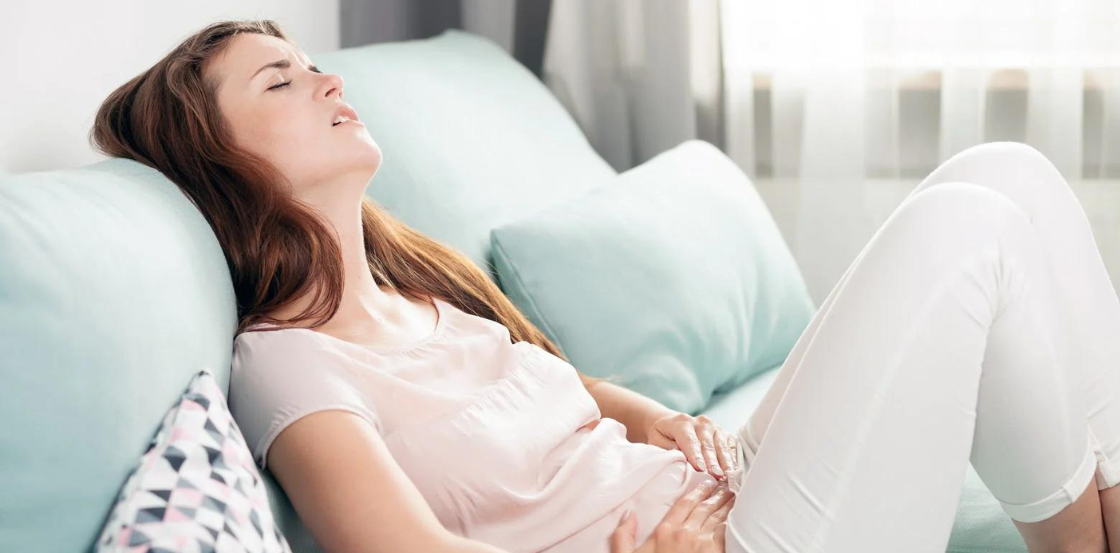Post link copied to clipboard!

Uterine fibroids symptoms vary from person to person. But once they become symptomatic, they may cause heavy menstrual bleeding, frequent urination, back pain and pain during sexual intercourse. Our private gynaecologists in London often don’t recommend fibroid treatment for smaller fibroids. However, large fibroids require medicines or surgery once they affect a woman’s daily routine.
Uterine fibroids are non-cancerous uterine growths, also known as leiomyomas (or simply myomas). This tumour can either grow inside or outside your uterus (womb). Usually, women misunderstand fibroids as a potential threat to developing uterine cancer. But it can never cause cancer.
Fibroids are muscular tumours growing in the uterus wall. It is usually benign, that is, non-cancerous. Fibroids can grow as a single tumour or develop several tumours in the womb (uterus). Its size resembles an apple seed (for small fibroids) or grapefruit (for large fibroids). Uterine fibroids can become very large in some unique cases.
Uterine fibroid type mainly depends on the location and how they attach. Some fibroid types include the following:
According to medical reports, 20% to 80% of women develop fibroids at age 50. Uterine fibroids are common in the early 40s or 50s. It can either grow as clusters or a single nodule. Fibroid clusters can grow from 1 millimetre to more than 8 inches. Fibroids can stress the urinary bladder, causing frequent urination.
These factors can increase the risk of developing fibroids in women:
As I mentioned earlier, uterine fibroid doesn’t cause any symptoms. Also, it doesn’t require any treatment or surgery. But what really matters is the regular checkups with your private gynaecologist. If your fibroids are huge than usual, say more than 20 centimetres, it can cause the following:
Fibroids will sometimes enlarge your abdomen. It might look as if you’re pregnant. Uterine fibroid symptoms will stabilise or subside after menopause. It happens because hormone levels will lower within your body.
The gynaecology field is still researching the exact cause of fibroids. However, gynaecologists and obstetricians believe hormones like oestrogen and progesterone play a role in causing fibroids. Some research and clinical trials point out these aspects:
Uterine fibroid growth may grow slowly or rapidly or remain the same size as earlier. Few fibroids may develop over time and shrink. Fibroids present during pregnancy shrink or disappear post-pregnancy. It is because the uterus goes back to regular size.
Uterine fibroids treatment depends on a lot of factors. It includes the size, location, number and the symptoms causing them. Small fibroids don’t need any treatment. Some women don’t experience symptoms or have any issues disrupting their daily lives. In such cases, private gynaecologists often recommend pelvic ultrasound scanning to monitor your fibroids.
Your gynaecologist will decide your fibroids treatment plan based on these points:
If you experience symptoms related to fibroids, contact your nearest private gynaecologist. They can help you develop a custom treatment plan based on your circumstances. Discuss your fertility options with your gynaecologist when making your fibroid treatment plan. Our best gynaecologists in London will offer a wide range of treatment options, whether you’re experiencing moderate to acute pain or urinary tract issues.
Here are a few methods offered by our private gynaecologists for fibroid treatment:
Talk with our private gynaecologists today to make decisions on any possible risks or complications you may have.
If you wish to become pregnant in the future, then it’s quintessential to discuss your fertility choices with your private gynaecologists. Some fibroid surgery will maintain the uterus, while other modes of surgery will remove or damage the womb.
Some crucial fibroid surgery techniques employed by our experienced gynaecologists are:
In today’s age, we know only little about fibroids and their prevention strategies. But still, scientists are discovering the causes of fibroids and developing fibroid treatment plans. If you or your close ones are facing challenges due to fibroids, book an appointment with Top Gynaecologists today! We have state-of-the-art medical equipment and skilled gynaecologists to help with uterine fibroids treatment. You can also visit our Top Gynaecologist clinic at Gloucester Road, London.